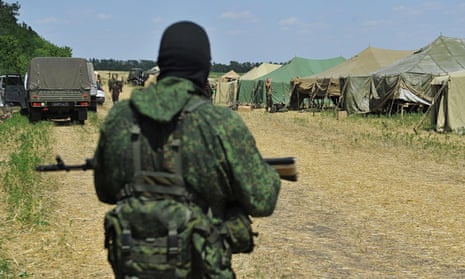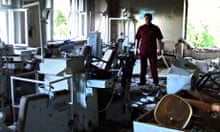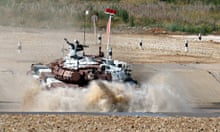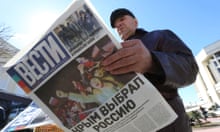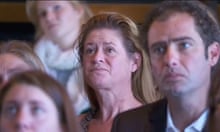Ukraine is the crisis that won’t go away. Once again the warning signs are multiplying, as troop levels on the Russian side of the border rise, military “exercises” that could overnight turn into the real thing begin, fighting around the rebel enclaves in eastern Ukraine becomes fiercer, and bellicose statements multiply.
Twice in the past it has seemed as if a path away from confrontation might open up. The election of Petro Poroshenko in May was one such moment. The new president spoke with Vladimir Putin on the telephone, even met him briefly, and Russia hailed his “positive thinking”. But the opportunity, if such it was, slipped away. The downing of the Malaysian airliner last month offered another chance for re-evaluation. The tragedy was so shocking that a change of policy would not have been seen as a Russian defeat, while the Kiev government and its allies might also have been able to shift ground without looking weak.
At the very least a pause in the fighting while the crash was investigated might have been expected. But the fighting did not slacken. It got worse, as the Ukrainians continued to squeeze rebel-held territory. The fall of Slavyansk in early July had already marked a change in the military balance. The once outclassed Ukrainian army was on the offensive, an offensive that today threatens the two major cities still under rebel control. President Putin may soon face a choice between accepting that the game, in its present form, is lost, or intervening to push the Ukrainians back.
He is certainly assembling the means to do so, dispatching to the border a combat-ready force that could, if it crossed into Ukraine, rapidly transform the situation. Nato sources suggest that the cover for such an incursion might be to label the troops as peacekeepers. This would be disastrous for all the states involved. Russia would be mired in a long-term intervention, worsening its already poor relations with the west. Ukraine would be amputated, for a second time. Eastern Europeans would be scared out of their wits. Western Europe and America would be ashamed they had failed to stop it, and more intransigent as a result. As we approach this critical juncture there should be something, somewhere, on the table that both sides could tolerate.
Not the formal or informal protectorate that Mr Putin might prefer, which would be just another recipe for trouble, but also not a sham autonomy. President Obama in his recent phone conversation with Mr Putin stressed the desirability of a diplomatic solution. It is a note often heard, but is it more than pious rhetoric? Such diplomacy does not have to be public and perhaps cannot be. It is to be hoped that there are at least back-channel consultations in progress. Otherwise we could be in for a clash we will all long regret.
